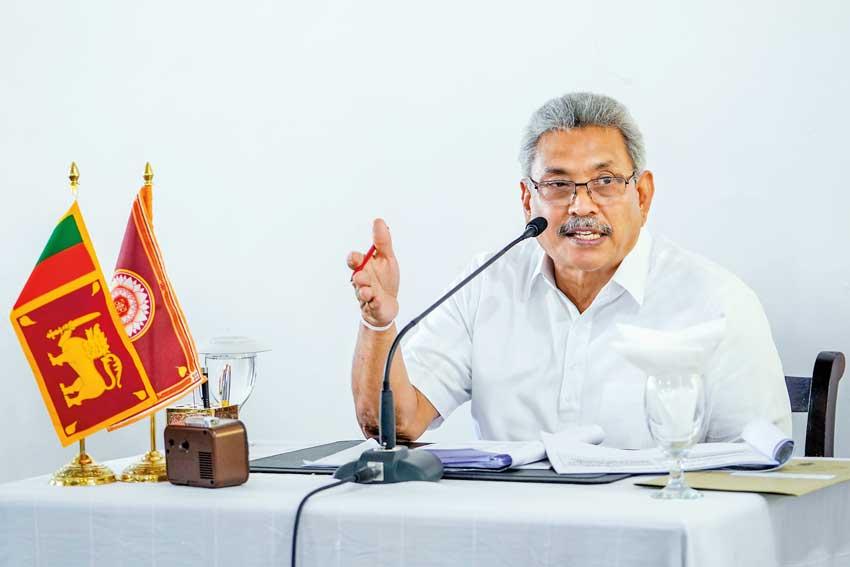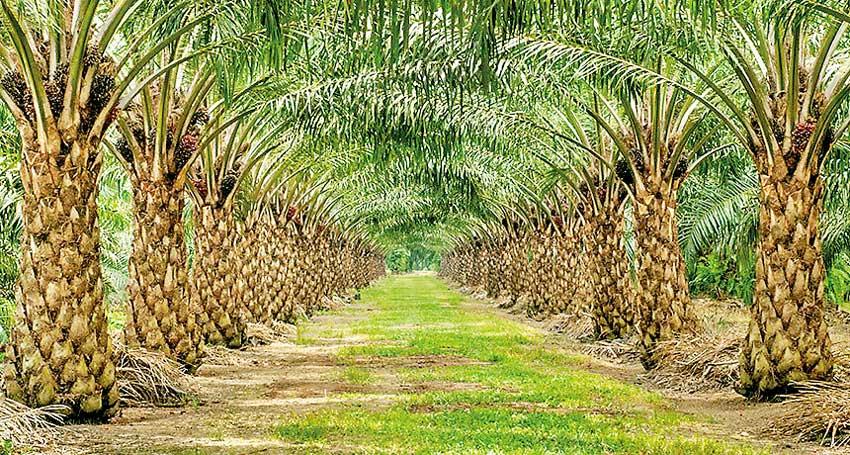28 Feb 2020 - {{hitsCtrl.values.hits}}

President Gotabaya Rajapaksa
President Gotabaya Rajapaksa has instructed State officials to take measures to ban oil palm cultivation based on various claims of its adverse effects on the environment, according to a Presidential Media Division (PMD) press release.
Rajapaksa gave these instructions when he took part in the inaugural district coordination committee meeting held in Udugama, Galle district yesterday.
The residents in the area had claimed that the springs in their areas had dried up due to oil palm cultivation.
President Rajapaksa had also instructed officials to conduct a comprehensive study on impacts of oil palm cultivations on the environment.
He had pointed out that although the crop is highly profitable, if oil palm cultivation damages the environment, the profitability of the crop
shouldn’t be mattered.
Last November, Minister of Plantations and Export Agriculture, Dr. Ramesh Pathirana announced that the Cabinet of Ministers had decided to ban oil palm cultivation based on a decision taken by the previous regime earlier in the same month.
In 2014, the then government reached a policy decision to expand oil palm cultivation under the crop diversification programme in the lease agreement signed by the Plantation Industries Ministry with Regional Plantation Companies (RPC).
Accordingly, RPCs were allowed to plant oil palm to a maximum extent of 20,000 hectares in the marginal, abandoned lands and economically unviable lands (over 30 years old rubber) and, only 20 percent of total land area of plantation were allowed to be converted to oil palm.

The extent of oil palm cultivation under this scheme has reached around 11,000 hectares as of now.
During the Yahapalanaya regime, the expansion of oil palm cultivation was halted due to strong objections raised by some residents and environmental
lobby groups.
The RPCs have around 550,000 plants valued at over Rs.500 million in their nurseries to be planted in remaining 9000 hectares approved by
the then government.
Further, during the meeting yesterday, President Rajapaksa also vowed to restore rubber cultivation in the country.
The PMD noted that the President was also contemplating to ban rubber imports as an incentive to encourage local rubber cultivation.
Natural rubber production in Sri Lanka has declined from 155000 MT in 1967 to 82600 MT by 2018. However, rubber-based industries focusing on exports have grown during the same time reaching over US$ 800 million exports per annum, mainly sourcing imported rubber.
High cost of production, dwindling yield and low rubber auction prices were key reasons for decline in natural rubber production.
Amid dwindling profitability from rubber, many planters have turned to more profitable crops such as oil palm to diversify their crop base.
16 Nov 2024 2 hours ago
16 Nov 2024 2 hours ago
16 Nov 2024 3 hours ago
16 Nov 2024 4 hours ago
16 Nov 2024 4 hours ago